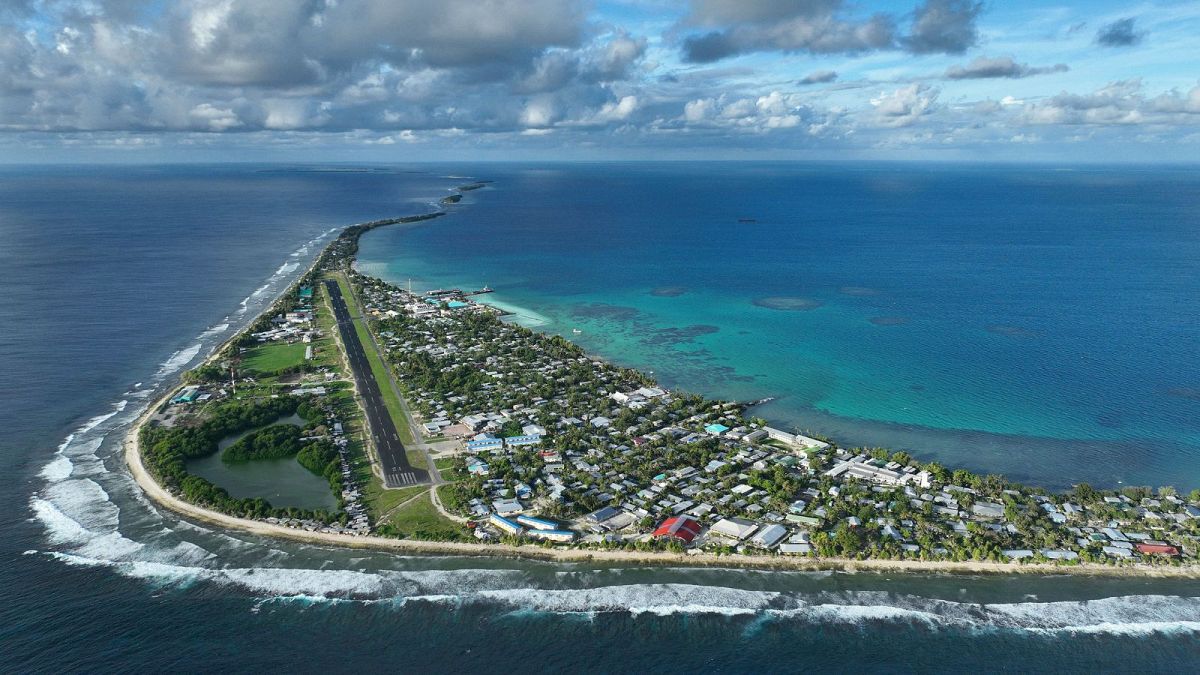

In a world brimming with both challenges and opportunities, various global developments offer a tapestry of stories that highlight resilience, hope, and the need for proactive measures. From international treaties to humanitarian exchanges and migration challenges, today’s news paints a dynamic picture of our interconnected world.
In a meaningful stride towards addressing the impacts of climate change, Tuvalu and Australia have introduced a new visa system which stands as a beacon of collaboration and mutual support. This initiative allows Tuvaluans to gain residency in Australia, providing them with a refuge from the harsh realities climate change imposes on their island home. The agreement is heralded as a promising example of climate mobility strategies, albeit underscored by a sentiment of sorrow for the inevitable hardships faced by Tuvaluans as their homeland bears the brunt of rising sea levels.
This treaty not only symbolizes international solidarity but also highlights the urgent need for global action against climate change. By facilitating such pioneering pathways, the involved nations demonstrate a shared responsibility in finding humane solutions to crises exacerbated by environmental changes. As countries increasingly face the consequences of climate shifts, models like this one offer a ray of hope, steering conversations towards a more inclusive future for climate-affected populations.
Meanwhile, a poignant moment unfolded as Ukraine and Russia completed a significant prisoner exchange, marking a step towards possible reconciliation amid ongoing tensions. This exchange included Chernobyl guards and defenders of Mariupol, who have since returned home to a warm and emotional reception. The release of these captives not only brings relief to the freed individuals and their families but also breathes new life into dialogues aimed at peaceful resolutions. The provision of comprehensive medical and psychological care to the freed prisoners underscores the commitment to their well-being and reintegration into society.
This development signifies the potential for humanitarian progress and serves as a reminder of the power of dialogue. While many hurdles remain in the path of lasting peace, efforts like these nurture hope and illustrate the impact of continued negotiation and communication. The emotional homecoming of these prisoners is a testament to the resilience of the human spirit and the enduring quest for unity.
Lastly, Greece is facing a significant increase in migrant arrivals, prompting a strategic response to manage the evolving situation. With more than 7,300 migrants making their way to Crete, predominantly from Libya, the Greek government has deployed naval forces to assist with the influx along the southern shores of the island. This increased movement of people has overwhelmed available shelters, highlighting the acute need for comprehensive, sustainable solutions to migration challenges.
By actively engaging in both immediate aid and long-term strategies, Greece underscores the importance of addressing the root causes of such migrations while providing humane treatment to those seeking refuge. The response also echoes broader discussions within the European Union on managing migration flows more effectively and ensuring the well-being of affected communities.
Each of these narratives, though diverse in nature, shares a common thread of resilience and the ongoing pursuit of harmony amidst adversity. As nations grapple with complex issues, these stories bring to focus the fundamental human values of solidarity, dialogue, and proactive stewardship of our shared world. By nurturing understanding and collaboration, there is potential to transform current challenges into opportunities for meaningful change.
Source: {link}
